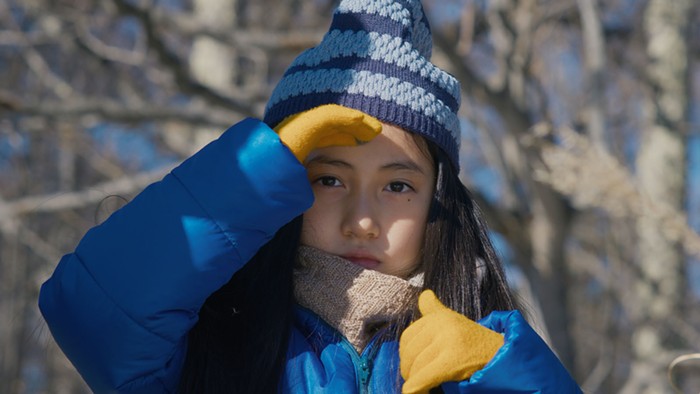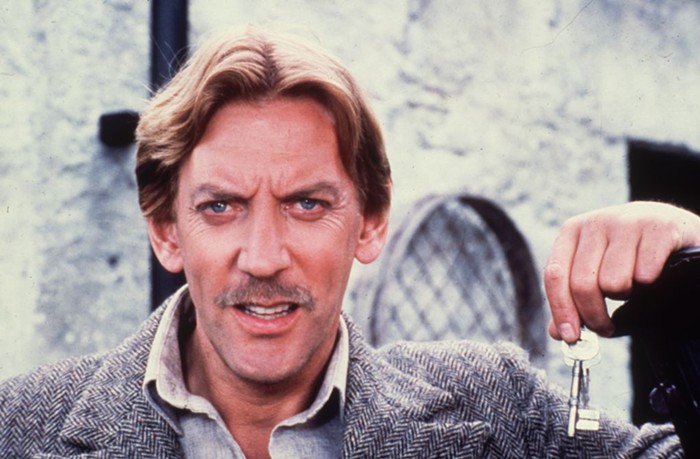
Not long after HBO's comedy/drama (more about this mix in a moment) White Lotus premiered earlier this summer, it received a shit-ton of positive press from critics, even from those on the far left. What many of these critics said about the show—which primarily concerns rich, white American tourists who spend some sunny days at an upscale resort on a paradisiacal Hawaiian island—is that it presents an unflattering (even subversive) critique of white males in a woke/BLM America. They claim the show subtly skewers the economic legacy of American colonialism/slavery and the flaws/limits of second-wave feminism.
It is true that all of these elements are in play during five of the show's six episodes, which represent the comedic part of the show's formula. But in the last episode, the dramatic part, each element, one by one, runs out of steam, and the power of hetero white males prevails spectacularly. The whole show, it turns out, is not about subversion but rather absorption—or, put more philosophically, what Hegelians call “aufheben,” a German word whose three key senses happen to neatly correspond with the show's narrative structure: one, to "lift up"; two, "to cancel"; and three, “to preserve.”
What's lifted up are all of the critiques of sexism, racism, and classism. What's cancelled are the sources of these critiques, which are predominately POCs. And what's preserved is the hetero white male dominance of capitalism, a class order that in the US has, for historic reasons, a pronounced racial inflection. Let's examine the main plot components of this hopeless monster.
They’re sharp-tongued, they’re blasé, they’re observant and they dress well.
In “The White Lotus,” Sydney Sweeney (Olivia) and Brittany O’Grady (Paula) put on what many viewers described as “terrifying” performances. https://t.co/1OOOjvQ47n
— The New York Times (@nytimes) August 18, 2021
Let's begin with this narrative unit, Olivia (Sydney Sweeney) and Paula (Brittany O’Grady). The former is white; the latter is black. The former is rich; the latter is (as far as we know) middle class. The former's parents are paying for the expensive vacation; the latter is getting a free fancy trip. The New York Times described this unit as the "Scariest Girls on TV." They are college students who don't give a fuck, pop hard illegal and prescription drugs like candy, and read radical books by Frantz Fanon and Judith Butler. These Gen Z girls don't play.
But what happens to their woke revolt? (And if you do not know already, my use of the word "woke" is wholly positive.) It turns into a very dumb robbery that only exposes the utter powerlessness of Paula, the black part of the narrative unit. Indeed, the robbery, which she cooked up, sends her island lover, a young Hawaiian brown man named Kai (Kekoa Scott Kekumano), out the story and straight to prison. Kai had a pretty good job, worked hard, and fell in love with a beautiful black woman. She rejected his offer to stay on the island with him, and instead got him caught in her half-baked scheme to get The Man and The Woman (two for the price—$70,000—of some trashy-looking bracelet kept in Olivia's parent's safe). By episode six, Kai has lost everything (drama). And Paula, who weeps and weeps (more drama), receives comfort from Olivia, and returns to the mainland without even trying to know what happened to her Hawaiian lover after the botched robbery that she promised would liberate him from his white oppressors.

How about the honeymooners, Rachel (Alexandra Daddario) and Shane (Jake Lacy)? The former comes from a middle-class family; the latter from a super-rich one. (By the way, all of the rich people in this show are white.) The former has big ideas; the latter is as dumb as a rock. The former married for money; the latter for the white standard of beauty. Eventually, Rachel, who is not popular with Shane's side of the family, comes to her senses and decides that the marriage is not going to work. She does not want to be a trophy wife for the rest of her life. But Rachel's decision to leave the marriage is almost immediately dashed by a development that involves her husband and the hotel's manager, Armond (Murray Bartlett).
These two men—one of whom, the hotel manager, is gay and white and Australian—get caught in a struggle that has class written all over it. Shane demands, again and again, that Armond know his place in the world. Armond resists Shane's demands at every opportunity. But his resistance, which becomes more and more addled by booze and drugs and booze/drug-fueled gay sex (comedy), only ends in his death (drama).
The vitriol that was the media backlash back then for that kiss?!
Murray Bartlett on the #TheWhiteLotus was butt naked rimming a guy. Times have changed. #eastenders pic.twitter.com/hwAXSMqn7G
— Ⓜⓘⓒⓗⓐⓔⓛ 💙 (@_lusotart_) August 23, 2021
Yes, Shane kills Armond with a knife, and Armond ends up in a box being loaded onto a plane heading to (I think) Australia (the country where the British Empire exported its surplus and politically troublesome population). And Shane returns to the mainland with his wife recommitted to the awful arrangement of their marriage.
What we find in the final drama episode of the show are black and brown characters who have been thrown into jail, or had their entrepreneurial dreams smashed, or are re-enslaved by white power. The disobedient middle-class manager is dead. And there is even a white cop, mistaken at first as a member of the Black Lives Matter movement, who ends up seducing a rich white woman. I'm not kidding. This is how the most regressive show I've seen in a long time ends.



















